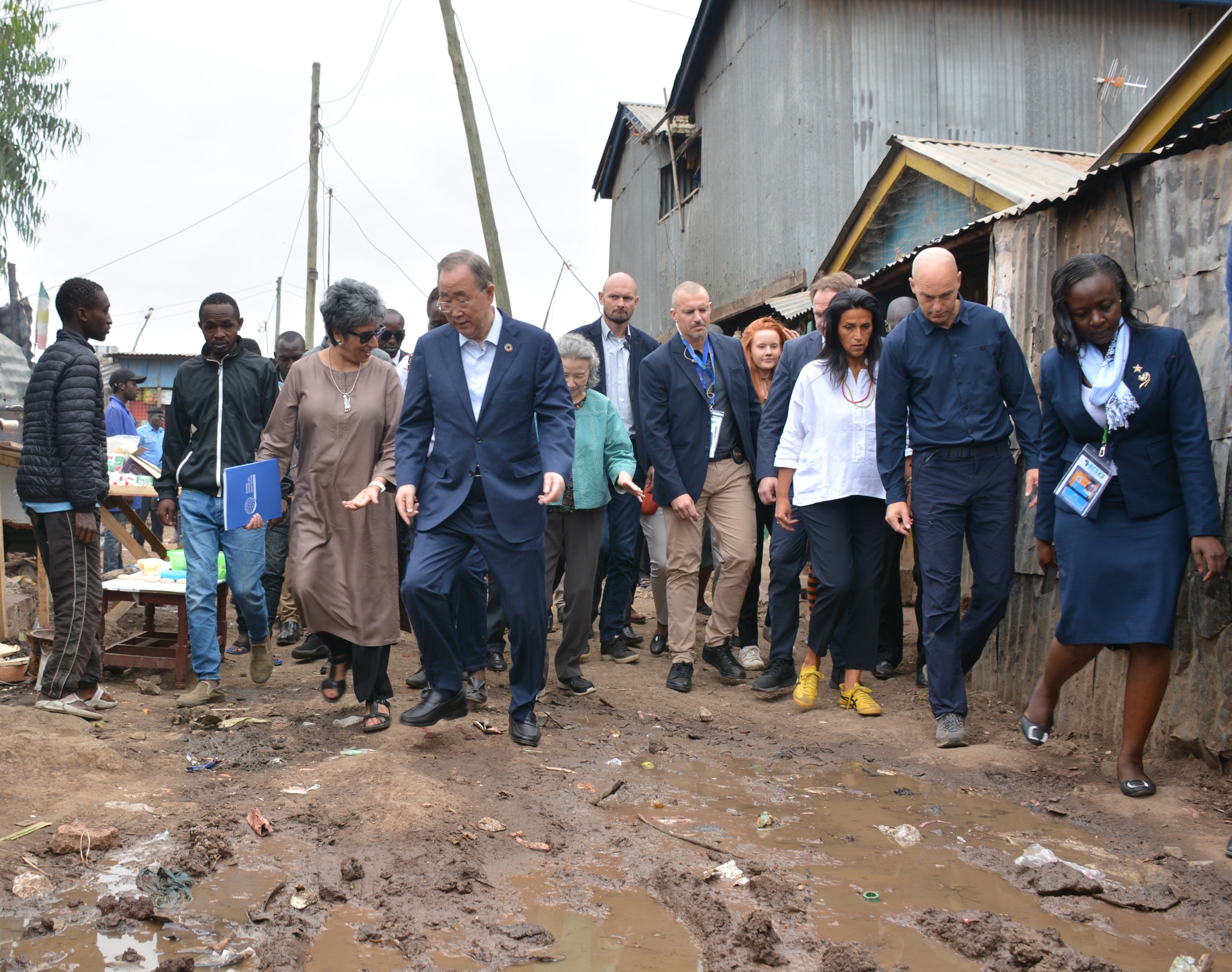African countries are finding themselves in a precarious position of debt traps due to expensive loans and grants from lenders.
The loans have made resources to adapt to climate change unavailable.
These were the sentiments made by the former UN Secretary-General Ban Ki-moon on Monday when he made a maiden visit to assess environmental programs in Mukuru Kwa Reuben in Nairobi County.
Giving an example of Kenya, the former UN Secretary-General said that the country will not in the near future get out of the debt trap which now stands at about Ksh 8.8 trillion because they are designed to have high interest rates to caution the lenders.
“I am sad to see the conditions haven’t changed despite the United Nations intervention. This is a global crisis, but the impact is most felt by people like you. This is not justice, this is not fair,” he said.
To solve the crisis, Ban Ki-Moon urged developed nations to channel more resources to developing countries to address the climate crisis.
The remarks come in the backdrop of the Africa Climate Summit which kicked off on Monday at the Kenyatta International Convention Centre and will provide a platform to call for the renegotiation of the country’s debt.
The Kenyan government has been steadfast in calling for new financing models saying the current ones do not fit the circumstances of the country.
Some of the financial institutions targeted for reforms include the World Bank and the International Monetary Fund.
Kenya’s Environment CS Soipan Tuya has also been vocal about the need for new reforms.
“We are proposing that we have a relook into our international financial institutions and how the financing of climate and development is happening,” Tuya said recently.
Tuya said there is a need to re-engineer the structure to respond to the debt distress question that will give the African countries some space and legroom to be able to focus on development as well as climate action.
The African continent will be putting forward a specific proposal for a new financing architecture that will work to actualize the green growth agenda and also deal with the debt problems crippling the continent.
The country needs $62 billion (Ksh 6.710 trillion) to mitigate and adapt to the impact of climate change between 2020 and 2030.
Kenya’s Nationally Determined Contribution shows that the country will mobilize 13 per cent of the resources needed from domestic sources while 87 per cent will come from international sources.
Kenya is among the countries in the continent that have been pushing the developed ones to deliver their pledge as per the Paris Agreement.
Under the agreement, developed countries were to mobilize jointly $100 billion (Ksh 10.1 trillion) per year by 2020 to address the needs of developing countries.
Unfortunately, this has not been delivered yet.
Tuya in addition said that Africa has massive resources in renewable energy and carbon sinks, minerals, the availability of sustainable agriculture opportunities among others that will be showcased around the world during the summit.
The state hopes to unveil far-ranging commitments from African Governments, the private sector, multilateral organizations, and philanthropists, including new investments, policies, programs, and financial mechanisms to combat climate change at the end of the summit.
The African continent is seeking to pursue a vision of climate-positive green growth that will drive inclusive economic growth, poverty reduction and job creation while limiting their emissions and contributing significantly to global reductions.





